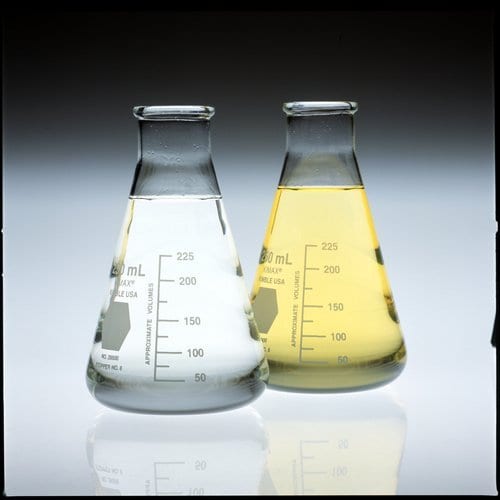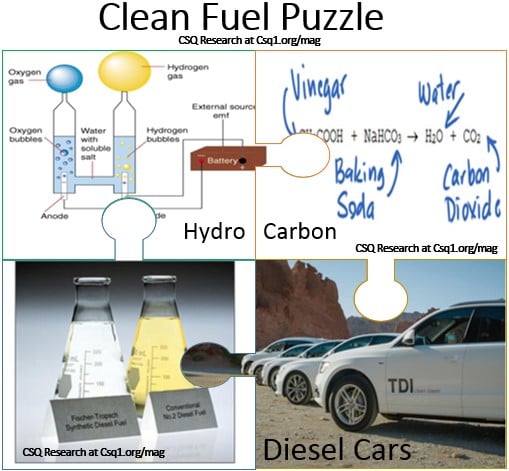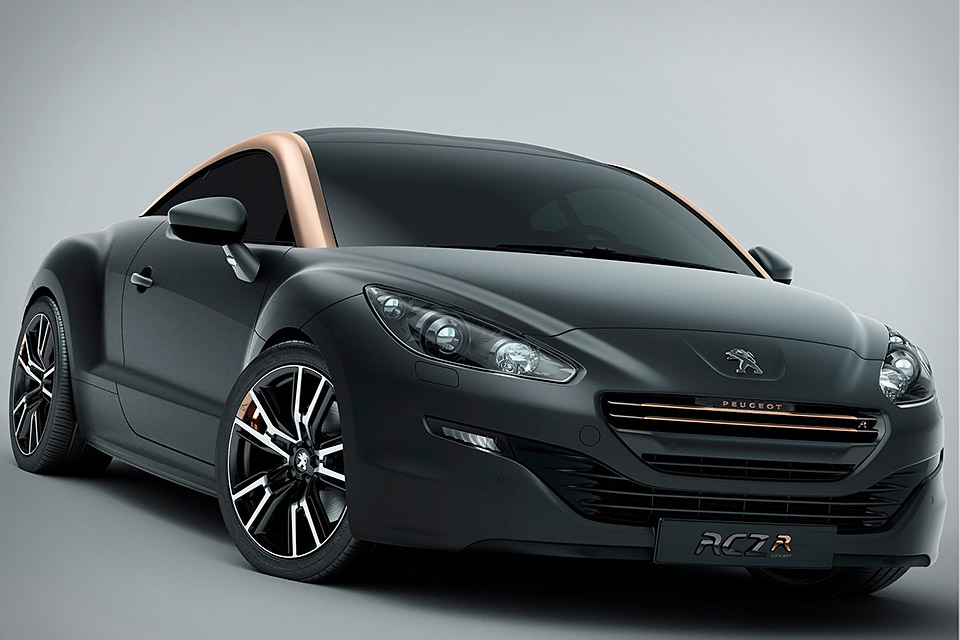- This topic has 0 replies, 1 voice, and was last updated 8 years, 2 months ago by
etilley.
-
AuthorPosts
-
February 21, 2016 at 7:08 pm #3859
etilley
KeymasterClean-Diesel Fuels are Important and Diesel Vehicles Are Even more Important.
A 100 Mile per Gallon Hybrid Diesel with Zero Emissions means that Diesel fuels and diesel vehicles are important. Why else is Diesel important?
- Diesel Fuel can be made from Water and Carbon Dioxide, and can be fabricated cost-effectively in a Zero-Carbon-Footprint process as well. This diesel fuel is produced by Audi today and burns with near Zero Emissions; the waste byproduct of creating this fuel is oxygen. Oxygen makes humans smarter – and bugs bigger, but the problem of what to do with all of that clean air is for another article. Audi calls their’s “Blue Crude”.
- Gasoline cars prevent us from changing to cost-effective non-fossil-based, zero-emission Crude Oils. Why are we voting for North American politicians who would call for an end to Diesel Cars – when these cars are so important to this change? Why do our news reports not cover this import diesel story?
- Diesel engines run on most undistilled oils; vegetable Oils, etc. In 1925, Paraffin Oil – could be created from coal and natural gas for the first time using the same Fischer-Tropshe Process as Audi’s Blue-Crude uses to produce Near-Zero Emission diesel. Even Paraffin Oil burns with 50% fewer emissions than Crude Oil; Crude Oil was a dirtier alternative that Oil Companies asked Rudolph Diesel to make to work sometime after the engine’s development; a fact that I imagine Rudolph was not too crazy about. Rudolph Diesel was found to have fallen overboard while on a boat cruise mysteriously in 1913 and that question was never posed to him.

- Why did fossil-fuel-based crude oil suddenly drop its price by more than half within two months of Audi’s announcement of a successful blue-crude fuel plant startup last summer? No free-market supply and demand arguments answer this question; the move stands to bankrupt at least two G8 countries who are drive out of the oil marketplace as they do not share Saudi Arabia’s $3 per barrel production cost. Does cheap fossil fuel oil have something to do with protecting the middle-east’s oil income? Will low oil costs drive early manufacturers and adopters of clean “blue” diesel out of the marketplace? Important questions – that will require governments and voters to weight in on so that a Blue Crude alternative survives.
- Diesel fuel takes less energy to refine – from any Oil – than gasoline, and it has the highest combustion efficiency of any fuel. Diesel is so efficient in fact, that it takes the same car almost twice as far on the highway as gasoline. In an electric-hybrid configuration – using today’s technology, a Diesel-Hybrid vehicle could get 100 miles per gallon with near-zero emissions while burning Blue-Crude clean diesel.
- Diesel does not dissolve in water making spills and environmental cleanups easier.
- Diesel is a lubricant that ensures long engine life – where gasoline is “a corrosive” that wears out engines more quickly.
- Diesel cars last longer, have fewer maintainable parts, lower running costs and set the high-bar for reliability, often continuing to operate for 500,000 to 1 million kilometers and beyond during their service lives (double, and more, than gasoline engines).
- Diesel fuel detonates through high compression only and is not flammable other through by a wick.
- One can run a diesel passenger car for 10 hours without stopping as a tank of fuel will often sustain almost 1000 km of highway driving.
- Replacing all cars with Diesel equivalents would reduce total energy needs by 15% overall (depending upon the country).
In the early autumn of 2015, Volkswagen was centered out for adjusting their in-car programming to turn off emission controls on their diesel passenger cars. EPA officials claimed that these changes resulted in diesel cars emitting nitrogen as high as 10 to 40 normal gasoline cars in operation.
As a CTO (Chief Technology Lead), I can assure that a quick reprogramming effort is all that is needed to change auto settings so that emissions controls resume upon “idle” – instead of just running during “sensor-plugin” testing. A little more work with adjustments would deliver a balanced performance and emission formula that makes overall diesel emissions equal to those of gasoline engine cars given gasoline’s much higher fuel burden upon the environment; Gasoline versus Diesel is not an apples-to-apples comparison as mentioned above. I had this programming change made to my Jetta TDI within 40 minutes and I noticed no change in driving experience nor fuel economy.
Last Week in Paris, at the World Energy Summit, World Leaders agreed to end the use of Fossil Fuels altogether by 2070. Although it is not unusual to see these promises broken, one cannot help but hope that we can greatly accelerate this forward momentum through education of terrific work readied all over the world.

Replacing Oil and Fossil Fuel with Clean Fuels
The reason that our cars run on oil-based fuels in the first place is that fossil fuel oil, like alcohols, contain hydrocarbons. Hydrocarbons are composed of, as one would expect, Hydrogen and Carbon.
Alcohols that have five or more carbon atoms per molecule are no longer soluble in water due to their hydrocarbon chain’s dominance and this is an important environmental consideration because most alcohols are deadly poisons and youyou would not want them mixing with your water supply.
When a fuel spill occurs, Methanol and Ethanol dissolve in ground water and can create a dangerous environmental problem. Methanol is cheaper to produce than ethanol, but a half-teaspoon of Methanol can cause blindness in humans. Ethanol in 3% to 40% mixtures is the only alcohol that we can consume, and the difference between these two is just a few degrees of temperature difference during their distillation process.
Today, Audi and parent company Volkswagen, are manufacturing crude oil made from water (H2O), and recovered carbon dioxide (CO2) in a 70% efficient process that creates Blue Crude. (Gray, 2015)

Audi’s clean hydrocarbon crude oil uses the same Fischer-Tropsch process that has been around since the 1920s (Davis, 2015). Its zero-carbon-footprint process makes use of wind energy. Carbon Dioxide sources include simple, safe home recipes like baking soda and vinegar (Calkins, n.d.), Air Recapturing, Natural Gas and others. This Oil needs only refining further to create component diesel fuel, gasoline, kerosene, and aviation fuel as needed, just like. You could choose to refine gasoline from this crude, but fuel in diesel form takes less energy to refine, has better combustion for a more fun ride, and is almost twice as efficient at highway speeds. Audi’s President runs this fuel in his A8 and reports that this fuel makes a car run quieter too.
The reasons to adopt Blue Crude are compelling. The combustion power of Audi’s e‑Diesel fuel is greater than that of fossil fuel diesel, it makes cars run quieter as well, and it is expected to be available to consumers for approximately $1 per liter at retail pumps – equal in cost, or less than, fossil fuel diesel. It can also be used in our current fuel distribution system.
The only waste by-product from manufacturing and burning this pure Blue Crude is oxygen and a small amount of CO2 – which might lead to bigger insects and smarter people after much time – but the problem of what to do about all that clean air is a problem for another day.
Assuming that clean fuel additives can be found to guard against solidification in cold temperatures, and other practical storage considerations, I imagine that it might even be possible to create a food-grade version of this product – although, why would you choose to drink it?
Cost is of little consequence when a combination reactor and nearby Blue Crude refinery could provide a limitless supply of clean burning mobile fuels in the same way that the USS Nimitz Aircraft Carriers desalinate water through electrolysis for a crew of 6,000 every day for the past forty years.
Russia’s brilliant new floating Nuclear Fission reactor power plant ships are another option based on proven 50-year icebreaker design. (Diggs, 2015) (OKBM, n.d.)

Germany’s Fusion Reactor creates limitless clean energy. When it begins operations after successful testing in December 2015, this project will be fully eight years ahead of the CSQ 100 Year Plan and BBC 150 Year Plan as well.

Reader Comments:
Clean Diesel and the 100 MPG Diesel Hybrid
The article discusses Clean-Diesel (zero-emission non-fossil-fuel based diesel fuel) almost exclusively – and that any diesel car will run clean-diesels far better than gasoline-cars run. Old does not mean bad – diesel engines have the highest energy conversion and lowest energy loss of any other combustion engine we know of.
When quick charge batteries ship for Teslas at about 1/5th the cost of today’s battery-powered cars, we have a better option – but until then, Diesel Cars with clean-diesel are a terrific 100 mpg (in hybrid configuration), zero-emission, instantly available option that could immediately save 1.4 million barrels of crude per day.
Diesel Hybrid
A hybrid Diesel with present technology could easily get over 100 mpg. How can you even compare that with gasoline engines? The testing the EPA does to emissions is like comparing apples to oranges. If it were done based on efficiency, no way a gasoline engine could even compare in emissions.
Battery Powered Cars are not ready.
Electric Cars are not ready yet but THAT DOES NOT MEAN FOSSIL FUEL-BASED GAS is needed either. A Zero Emission Diesel Fuel can be made from Water, Vinegar and Baking Soda (like the Blue Crude that Audi markets in Germany) and it can run with efficiencies reaching 100 mpg diesel using existing hybrid engine technology – TODAY. Do you ever wonder, WHY DO WE NEVER HEAR ABOUT THIS OPTION in the media?
When will Electric Cars be ready?
Electric Cars will be ready for mass use once the cost of electric cars are comparable to diesel vehicles and 100% battery recharge times reduce from 13 hours, at a non-standard (in North America) 240-Volt plug-in charger, to the same 6 minute fill-up time as diesel. Also – the worlds electrical power plants may well have to convert to Thorium Reactors before Coal can be completely replaced. A replacement for Zero Emission Diesel fuel is going to take very big technology-shoes to fill.
So when will battery cars be ready?
1. Once we replace Coal Plants with Fusion or Thorium Reactors (5 to 20 years away)
2. Once Car Batteries charge fully in 10 minutes (5 years ?)
3. Once the price of battery powered cars comes down to regular car costs. (5 to 10 years)Volkswagon’s Clean Projects in 2016
Volkswagen, the world’s largest car maker – and Audi’s parent company, is one of the only carmakers brave enough to bring an affordable diesel passenger car to North America. The Jetta, Passat, and Tiguan TDI (Turbo-Diesel Injection) vehicles are marvels of engineering & efficiency, at very competitive prices and with incredible value wheb highway mileage that is twice that of a gasoline vehicle is factored in.
Click here for an overview of clean technologies that Volkswagon are actively campaigning to bring to North America.
Other Alternative Fuels
There are numerous methods to create synthetic fuels and all create 50% (half) the emissions of Crude Oil as well. In 2012, a team of Princeton scholars exhaustively worked out a 100% replacement of Oil – see Elia, J. A., Baliban, R. C., & Floudas, C. A. (2012). Nationwide energy supply chain analysis for hybrid feedstock processes with significant CO2 emissions reduction. AIChE Journal, 58(7), 2142–2154. http://doi.org/10.1002/aic.13842

-
AuthorPosts
- You must be logged in to reply to this topic.


